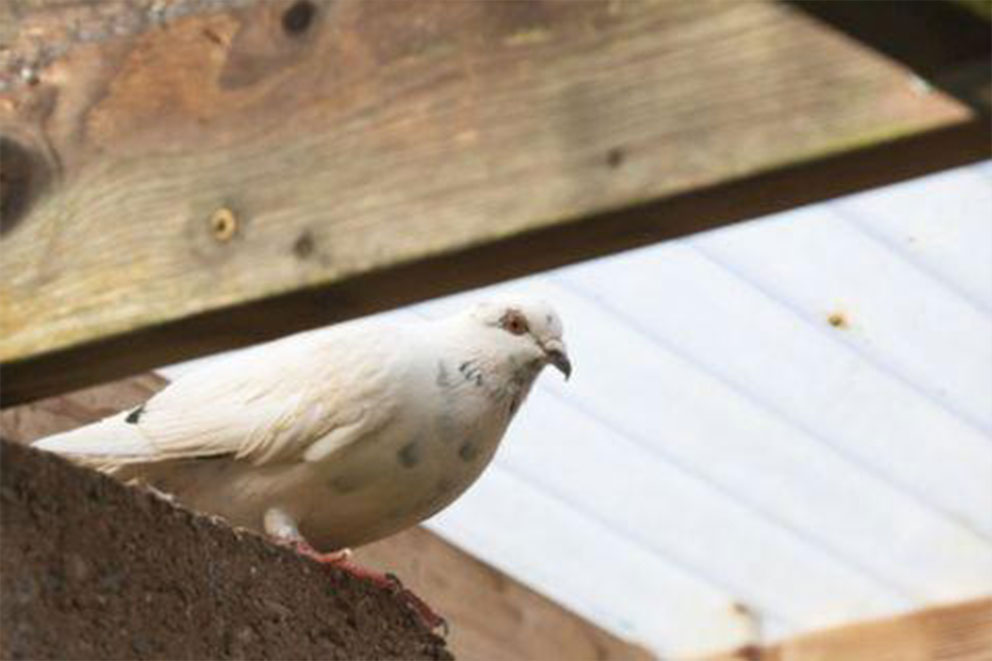Sick or injured birds
Because bird flu is still affecting many birds across the UK, it’s very important to take precautions to keep yourself safe as it can affect humans too. If you do find a sick bird, don’t touch it at first and please read our bird flu advice before you do anything else.

How to tell if a bird is sick or injured
Wild birds will hide signs of pain when people are around, so it’s often not easy to tell if they need help.
If you’re not sure, then take pictures or videos of the bird and contact a wildlife rehabilitator for more advice. Take the bird to a vet if it is sick or injured.
Signs to look out for
- You can see obvious wounds or bleeding
- If a bird has been caught by a dog or cat, there’s a risk it could develop an infection. So, they always need to be taken for treatment, even if you can’t see any obvious wounds
- The bird doesn’t move when you approach them - it’s normal for healthy adult birds to rest on the ground, but they should still try to walk or fly away if someone approaches them
- The bird’s feathers look fluffed up, but remember they will also do this during cold weather to keep warm
- The bird can’t hold their head up straight or keep their balance properly, or their head and neck looks twisted
- There’s swellings or crusty growths on the skin, usually seen on the face, legs or feet
- The bird is panting or breathing fast, and you’ve seen them doing this for at least two hours. Panting is a normal way for birds to cool down if they’re too hot, but it can also be a sign of disease
Some birds with bird flu won’t show symptoms, but you should still check the list of symptoms in case.
How to help a sick or injured bird
Bird flu is still affecting many birds across the UK. If you find a sick bird, don’t touch it at first and read our bird flu advice before you do anything else.
If you find a bird that you suspect to be sick or injured, you should first check whether it is an adult or baby. It's very common to find baby birds on the ground in spring and summer. If you find a baby bird, keep your pets away and follow our baby bird advice.
Video: How to help a bird
Reporting sick birds
You can help by reporting any sick birds you see to Garden Wildlife Health, but please be aware they aren't able to help rescue or treat birds. They carry out monitoring of diseases in garden birds, so reports of sick birds are very important for their work. Any birds with deformities to their beaks can also be reported to the British Trust for Ornithology.

A bird has flown into your window
If you're aware of a bird that has flown into a window, and appears stunned rather than injured, then monitor quietly for two hours. If possible place the bird in a well-ventilated box. If the bird appears to have recovered within two hours, open the box to see if the bird will fly away. If the bird still seems stunned and unable to fly after two hours, please get in touch.
How to stop birds from flying into a window
Birds will sometimes fly into windows as a result of being confused with the reflection (which may be of trees or the sky) and therefore don't realise that it's glass. To deter birds from flying into a window, you can try putting something over the window to minimise the reflection, for example, a stick-on silhouette of a bird of prey.
What to do if you find a dead bird
Don’t touch or pick up any dead or visibly sick wild birds that you find, and wash your hands thoroughly with soap and water if you touch wild bird faeces or feathers or after feeding wild birds.*
If you see a dead wild bird, please report it to Defra using the online reporting system or by calling the Defra helpline (03459 33 55 77). The finding will be triaged and the bird may be collected for disease surveillance.
Where dead birds are not required for disease surveillance purposes, they may be eligible for other surveillance schemes such as the Garden Wildlife Health Project, which provides useful information on diseases affecting British birds and how you can help the birds in your garden stay healthy.
* Please see Section 28 of the Mitigation strategy for avian influenza in wild birds in England and Wales for guidance on removal and disposal of dead wild birds and the situations where this may be warranted.



